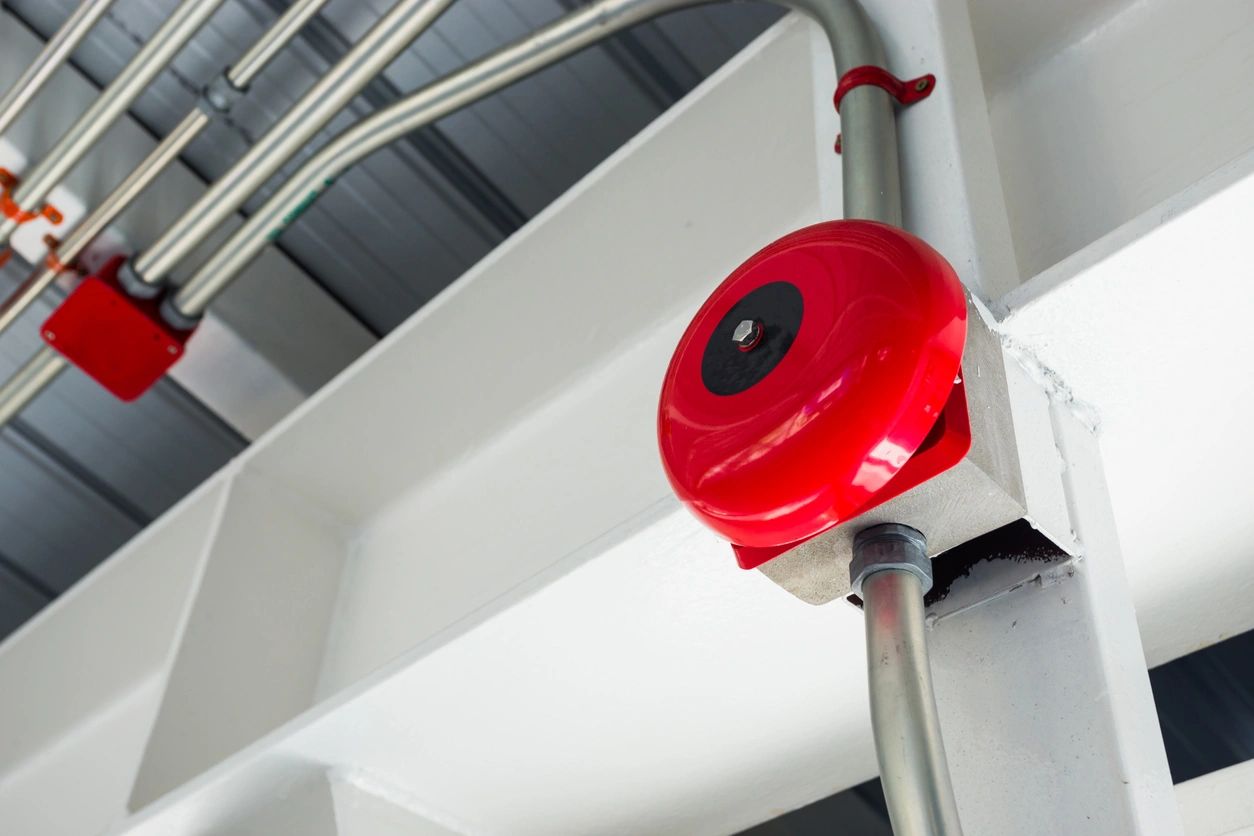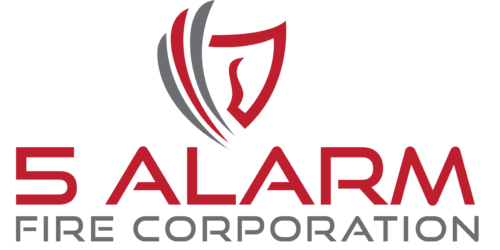
What is a Fire Alarm System?
Ensuring Safety and Peace of Mind
Fire is a formidable force that can cause destruction within moments. The importance of early detection and timely response cannot be overstated when it comes to minimizing damage and protecting lives. This is where fire alarm systems come into play.
In this blog, we will delve into the fundamental concept of fire alarm systems, their purpose, and how they play a crucial role in safeguarding properties and the people within them.
The Basics: Detecting and Alerting:
At its core, a fire alarm system is a network of interconnected devices designed to detect the presence of fire, smoke, or heat within a building. It combines various components, including smoke detectors, heat detectors, alarms, and control panels, to monitor and respond to potential fire incidents. When a fire or smoke is detected, the system activates audible and visual alarms to alert occupants and initiate appropriate actions to mitigate the danger.
Early Warning for Swift Response:
The primary purpose of a fire alarm system is to provide early warning, enabling swift evacuation and response to the presence of a fire. Time is of the essence during a fire emergency, and the ability to detect smoke or heat at its early stages can make a significant difference in minimizing property damage and saving lives. Fire alarm systems act as the first line of defense by promptly alerting occupants, allowing them to evacuate to safety and enabling emergency personnel to be notified and dispatched quickly.
Components of a Fire Alarm System:
- Smoke Detectors: These devices are designed to sense the presence of smoke particles in the air. They can detect both visible smoke and invisible combustion byproducts, triggering an alarm when a certain threshold is reached.
- Heat Detectors: Heat detectors are designed to sense rapid increases in temperature or excessive heat in an area. They are commonly used in environments where smoke detectors may not be suitable, such as kitchens or garages.
- Alarms: Audible and visual alarms are an essential part of a fire alarm system. They are responsible for alerting occupants to the presence of a fire or emergency, ensuring that everyone is aware of the situation and can take appropriate action.
- Control Panels: The control panel serves as the central command center of the fire alarm system. It receives signals from the detectors and triggers the alarms accordingly. It also provides valuable information about the system’s status, allowing for effective monitoring and maintenance.
Benefits of Fire Alarm Systems:
- Early Detection and Swift Response: Fire alarm systems detect fire incidents early, providing occupants with precious time to evacuate and firefighters with valuable time to respond.
- Property Protection: Fire alarm systems can help minimize property damage by alerting authorities promptly, enabling swift intervention to contain and extinguish the fire.
- Life Safety: The primary objective of a fire alarm system is to protect lives. By alerting occupants to potential dangers, fire alarm systems contribute to the safe evacuation of individuals, reducing the risk of injuries or fatalities.
Compliance with Regulations:
Fire alarm systems are mandated by local building codes, NFPA 72 (National Fire Protection Association), and AHJ (Authorities Having Jurisdiction). Installing and maintaining a properly functioning system ensures compliance with these regulations, helping you avoid potential penalties and ensuring the safety of your property and occupants.
Local building codes serve as the foundation for fire alarm system requirements, outlining the specific guidelines and standards that must be followed during installation, testing, and maintenance. These codes are put in place to safeguard buildings and their occupants, as well as to ensure consistency and uniformity in fire safety measures.
NFPA 72, also known as the National Fire Alarm and Signaling Code, is a widely recognized standard for fire alarm systems. Developed by the NFPA, this comprehensive code covers the design, installation, testing, and maintenance of fire alarm systems. Compliance with NFPA 72 ensures that your fire alarm system meets the industry’s best practices and is capable of effectively detecting and alerting occupants in the event of a fire.
Authorities Having Jurisdiction (AHJ) are governmental or non-governmental organizations responsible for enforcing fire codes and regulations. They have the power to review, approve, and inspect fire alarm systems to ensure compliance with the applicable codes and standards. Working closely with the AHJ is crucial to obtain the necessary permits and certifications for your fire alarm system, as well as to ensure ongoing compliance with regulations.
By adhering to the local building codes, NFPA 72, and working closely with the AHJ, you can rest assured that your fire alarm system meets the necessary requirements for fire safety. Installing and maintaining a properly functioning system not only helps you avoid potential penalties but also provides peace of mind knowing that your property and occupants are protected.
In summary, fire alarm systems are critical components of any building’s fire safety strategy. These systems detect the presence of fire, smoke, or heat, and provide early warning to occupants, allowing for swift evacuation and enabling quick response from emergency personnel.
By investing in a reliable fire alarm system, property owners can protect their assets, ensure the safety of occupants, and gain peace of mind in knowing that they have taken proactive measures to mitigate the risks associated with fire incidents.
At 5 Alarm Fire Corporation, we understand the importance of fire alarm systems in safeguarding lives and properties. As a trusted provider of comprehensive fire alarm services, we are committed to delivering top-quality solutions that meet the highest safety standards.
Contact us today to learn more about fire alarm systems and how we can help protect what matters most to you.
Written by Bernadette Merrill, Electrical Contractor, Co-Owner of 5 Alarm Fire Protection, Fire Alarm Services Expert, and Content Writer.
